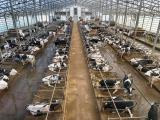Apr 6, 2006 (CIDRAP News) – Deadly H5N1 avian influenza has infected a swan found on the coast of Scotland, the first time the virus has turned up in a wild bird in the British Isles, news services reported today.
The news came as the United Nations Food and Agriculture Organization (FAO) reported that efforts to control avian flu on poultry farms "are slowly proving successful," especially in Thailand, Vietnam, and China.
In Scotland, the Scottish Executive and the British National Farmers Union said a mute swan found last week at Cellardyke, 450 miles north of London, had the H5N1 virus, according to the Associated Press (AP).
Scotland's chief veterinary officer, Charles Milne, said it was not known whether the swan was from a local or migratory flock, according to a Reuters report. Milne said the partially eaten swan carcass was found Mar 29 and was sent to the laboratory in Weybridge in southern England for testing 2 days later.
A spokesman for the Veterinary Laboratories Agency in Weybridge confirmed today that the swan carried the highly pathogenic H5N1 virus, according to an Agence France-Presse (AFP) report.
Virus has reached 13 EU countries
The finding makes the United Kingdom the 13th European Union member to report H5N1 avian flu in wild birds, according to a statement posted today by the European Commission.
In response to the finding, local officials ordered that all free-range poultry in a 960-square-mile area around Cellardyke be brought indoors, AFP reported. The area has 175 registered poultry farms, including 48 that have a total of 260,000 free-range birds. The story said the town is near the university town and golf mecca of St. Andrews.
Ironically, the report of the case interrupted a 2-day exercise in which authorities practiced responding to an avian flu outbreak. The exercise was canceled on its second day "to free up participants to deal with the real thing," AFP reported.
British officials quickly tried to allay public fears of avian flu. AFP reported that Prime Minister Tony Blair, visiting Northern Ireland, said, "This is not a human-to-human virus. It is something that is transmitted to poultry. It is only if humans are in direct and very intensive contact with poultry that there is any risk involved."
Dr. Jim Robertson of the National Institute for Biological Standards and Control said, as quoted by Reuters, "There is a better chance of a person winning the national lottery than catching bird flu in the UK today."
Milne said there was no sign of infections in domestic birds in the area and no reason to think a domestic animal had eaten the swan, according to Reuters.
The swan is not the first bird to turn up with H5N1 in the UK. Last October, two parrots imported to Britain from South America were found to have the virus, but they had been quarantined on arrival and the disease didn't spread. Officials suspected that the parrots might have caught the virus from birds from Taiwan that were in quarantine at the same time.
FAO cites some success in control efforts
The FAO announced today that, though H5N1 avian flu has been confirmed in 45 countries, "efforts to combat the disease on poultry farms are slowly proving successful on many fronts."
More than 200 million birds have died of the disease or been sacrificed in control efforts, the agency said. "But vigorous response to outbreaks in this region [Asia], particularly in Thailand, Viet Nam and China, appears to have reduced the transmission of the disease from poultry to humans, according to Joseph Domenech," the FAO's chief veterinary officer.
The statement went on to say that vaccination campaigns, such as the one in Vietnam, have helped some countries limit the disease. In addition, compensation of poultry farmers for their losses has helped cushion the economic blow and encouraged timely reporting of outbreaks.
The agency said it continues to urge governments to concentrate their control efforts on farms. The FAO "emphasizes the role of human activity—trade and markets—which are the main spreaders of the virus but also are the areas that can be inspected, controlled and improved."
Wild birds also can spread the virus, but little can be done about that, except to prevent contact between wild and domestic birds, the agency added.
"The need to keep domestic birds away from wild birds has been widely recognized and efforts to do so have been implemented in many countries," Domenech said.
















